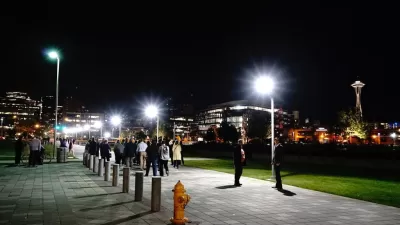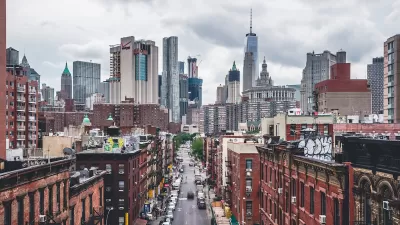In this essay from Lapham's Quarterly, Lewis Lapham muses on the nature of the city: how it is perceived, by whom and for whom; and how it incubates new ideas and facilitates democracy.
As a part of its forthcoming special issue on The City, Lapham's Quarterly features an essay by the journal's founder Lewis Lapham on the "myth of the city," which examines historical, literary and contemporary views on the City. In this preview on Alternet, Lapham writes:
"[I]n whose name is it being built, and what gods does it serve? The way in which a city is seen or approached, by whom and from what vantage point, invests it with the moral and emotional roofing.
...The city stands willing to sell, at a steep discount and on an hour's notice, last year's priceless truth or next week's incomparable celebrity, at the same time offering to buy, at fair market price, new lyrics for an old song. The city instills the habit of forbearance, teaches the lessons of civility, [and] encourages the practice of democracy.
As was true of their Puritan forbears in the New England wilderness, the nation's ruling and explaining classes regard the urban temperament as the port of entry for all things foreign and obnoxious...The projectors of the urban future meanwhile define the Internet as the civilizing agent that replaces the need for the New York Stock Exchange and the Broadway theater, and the great, good American place."
FULL STORY: Is the Myth of City Life More Significant Than the Real City Itself?

Planetizen Federal Action Tracker
A weekly monitor of how Trump’s orders and actions are impacting planners and planning in America.

Maui's Vacation Rental Debate Turns Ugly
Verbal attacks, misinformation campaigns and fistfights plague a high-stakes debate to convert thousands of vacation rentals into long-term housing.

San Francisco Suspends Traffic Calming Amidst Record Deaths
Citing “a challenging fiscal landscape,” the city will cease the program on the heels of 42 traffic deaths, including 24 pedestrians.

Amtrak Rolls Out New Orleans to Alabama “Mardi Gras” Train
The new service will operate morning and evening departures between Mobile and New Orleans.

The Subversive Car-Free Guide to Trump's Great American Road Trip
Car-free ways to access Chicagoland’s best tourist attractions.

San Antonio and Austin are Fusing Into one Massive Megaregion
The region spanning the two central Texas cities is growing fast, posing challenges for local infrastructure and water supplies.
Urban Design for Planners 1: Software Tools
This six-course series explores essential urban design concepts using open source software and equips planners with the tools they need to participate fully in the urban design process.
Planning for Universal Design
Learn the tools for implementing Universal Design in planning regulations.
Heyer Gruel & Associates PA
JM Goldson LLC
Custer County Colorado
City of Camden Redevelopment Agency
City of Astoria
Transportation Research & Education Center (TREC) at Portland State University
Jefferson Parish Government
Camden Redevelopment Agency
City of Claremont





























